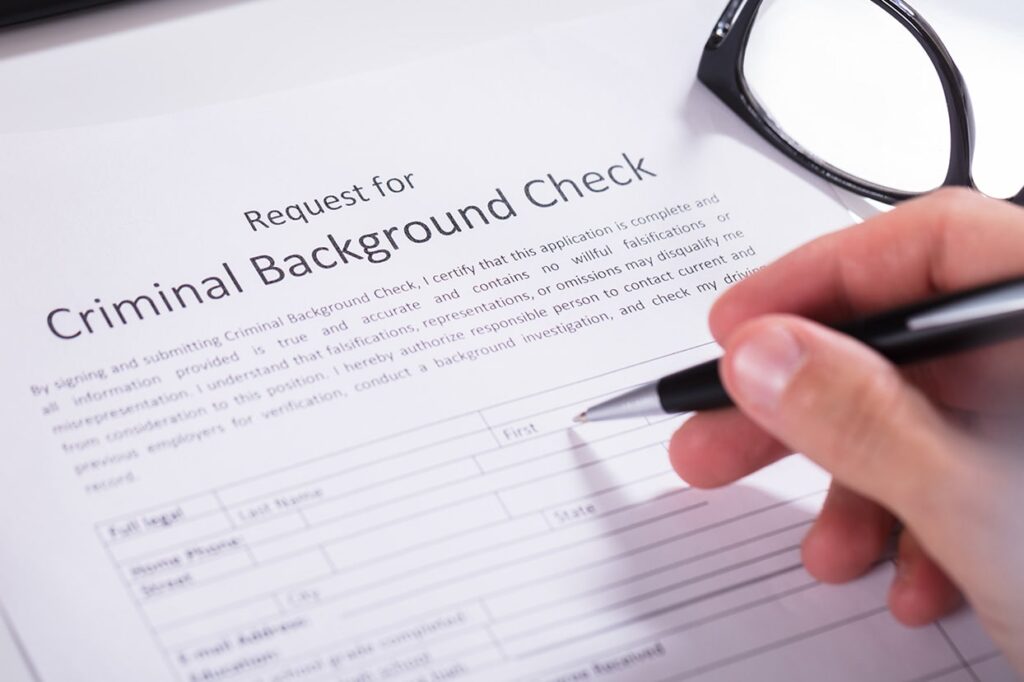Your Guide to Interpreting FBI Background Check Outcomes
Ever been curious about what your FBI background checks reveal? Whether you’re applying for a job, seeking a license, or just curious about your history, understanding the intricacies of an FBI background check can be crucial. This guide will walk you through everything you need to know about obtaining and interpreting your FBI background check results.
Getting to Know FBI Background Checks
FBI background checks are thorough investigations that compile your criminal history, if any, from across the United States. Employers, government agencies, and individuals use them to verify a person’s criminal and sometimes civil history. Understanding the depth and scope of these checks can help you prepare for or respond to the results.
The FBI’s database is one of the most comprehensive in the world, pooling information from federal, state, and local law enforcement agencies. This means an FBI background check can uncover details that might be missed in less extensive checks.
For individuals, knowing what might appear on such a report is critical, especially when applying for jobs, adopting a child, or trying to secure a visa. Moreover, these checks don’t just list past misdemeanors or felonies; they can also include fingerprints, a list of aliases, and even, in some cases, records of non-criminal encounters with law enforcement if they were fingerprinted.
Understanding the breadth of an FBI background check is the first step in effectively managing your records and ensuring your past doesn’t negatively impact your future opportunities.
Do You Know Why FBI Checks Are Key?
FBI checks are pivotal in ensuring the safety and integrity of various sectors, including employment, security clearance, and licensing. Unlike state or local checks, they offer a comprehensive look at an individual’s history, which may only cover specific regions or time frames.
The nationwide scope of FBI checks helps maintain high standards across critical areas such as education, healthcare, and government, where trust and reliability are paramount. By providing a detailed account of an individual’s background, these checks prevent those with potentially harmful histories from obtaining positions of power or trust.
Furthermore, they serve as a deterrent for individuals considering fraudulent activities, knowing their past actions could disqualify them from future opportunities. For employers and agencies, the depth of information available through FBI checks enables more informed decision-making, enhancing workplace safety and compliance with regulatory requirements.
Lastly, these checks contribute to national security by screening individuals for sensitive roles, ensuring only those with clear backgrounds can access classified information.
How to Get Your FBI Check Results
To get your FBI check results, follow this straightforward process:
- Start Online: Visit the FBI’s official website or the site of an FBI-approved channeler to initiate your request. You’ll find detailed instructions and the necessary forms to fill out.
- Complete the Application Form: Fill out the form with accurate personal information. Ensure all details are correct to avoid any delays in processing.
- Submit Fingerprints: You can submit your fingerprints electronically or by using a fingerprint card via mail. For electronic submission, locate a service provider to take your fingerprints and submit them electronically to the FBI or an approved channeler.
- Pay the Fee: The FBI charges a fee for processing background checks. The fee can be paid online through the FBI’s or the channeler’s website using a credit card or other accepted payment methods.
- Receive Your Results: After processing your fingerprints and payment, you’ll receive your background check results. The delivery method (mail or electronic) will depend on how you submit your request. Electronic results are typically received faster than postal mail.
- Review Your Report: Once you receive it, review it thoroughly for accuracy. If there are discrepancies, follow the FBI’s guidelines for disputing inaccuracies.
Following these steps ensures a smooth process in obtaining your FBI background check results, allowing you to proceed with your application or personal review confidently.
Fingerprinting Made Easy at USPS Locations
One of the most convenient ways to submit your fingerprints for an FBI check is through select United States Postal Service (USPS) locations. They offer digital fingerprinting services, streamlining the submission process and making it more accessible to individuals nationwide.
Navigating the Process with an FBI-Approved Channeler
For quicker results, you might consider using an FBI-approved channeler. These entities are authorized to submit requests on behalf of individuals, often offering faster processing times and electronic delivery of results. It’s a useful option for those needing their results promptly.
Decoding Your FBI Background Check
Understanding the information presented is crucial once you receive your FBI background check. The report outlines your identification details, criminal history records, and may include other information based on the request reason, such as employment or licensing purposes.
A Closer Look at Your Identity History Summary
Your FBI background check includes an Identity History Summary, often called a “rap sheet.” This summary details your personal information (like name and birth date), any arrest records, the outcomes of those arrests, and any federal employment or military service.
Unpacking Arrests, Jobs, Citizenship, and Military Service in Your Report
The report doesn’t just list arrests; it also includes information about the disposition of those arrests, such as convictions, sentences, and possibly even acquittals. Additionally, it may list past federal employment, naturalization, or military service, providing a comprehensive view of your interactions with federal entities.
Why Reviewing Your FBI Check Results is Crucial?
Reviewing your FBI background check is essential not only to ensure the accuracy of the information but also to understand what potential employers or licensing boards will see. If there are inaccuracies, the FBI provides a process for challenging and correcting this information, safeguarding your rights and reputation.
Mistakes in your FBI background check can arise from identity theft, errors in record-keeping, or even simple clerical errors, leading to wrongful criminal records attached to your name. Such inaccuracies can have profound implications, potentially costing you job opportunities, licenses, or other critical life events.
By thoroughly reviewing your FBI check results, you can take proactive steps to rectify any errors before they impact your professional and personal life.
Conclusion
Navigating your FBI background check doesn’t have to be daunting. By understanding how to obtain, interpret, and, if necessary, correct your report, you can confidently manage this aspect of your personal or professional life. Whether for job applications, licenses, or personal curiosity, knowing what’s in your FBI background check empowers you to take control of your narrative.
Stay in touch to get more updates & news on Discover Tribune!






